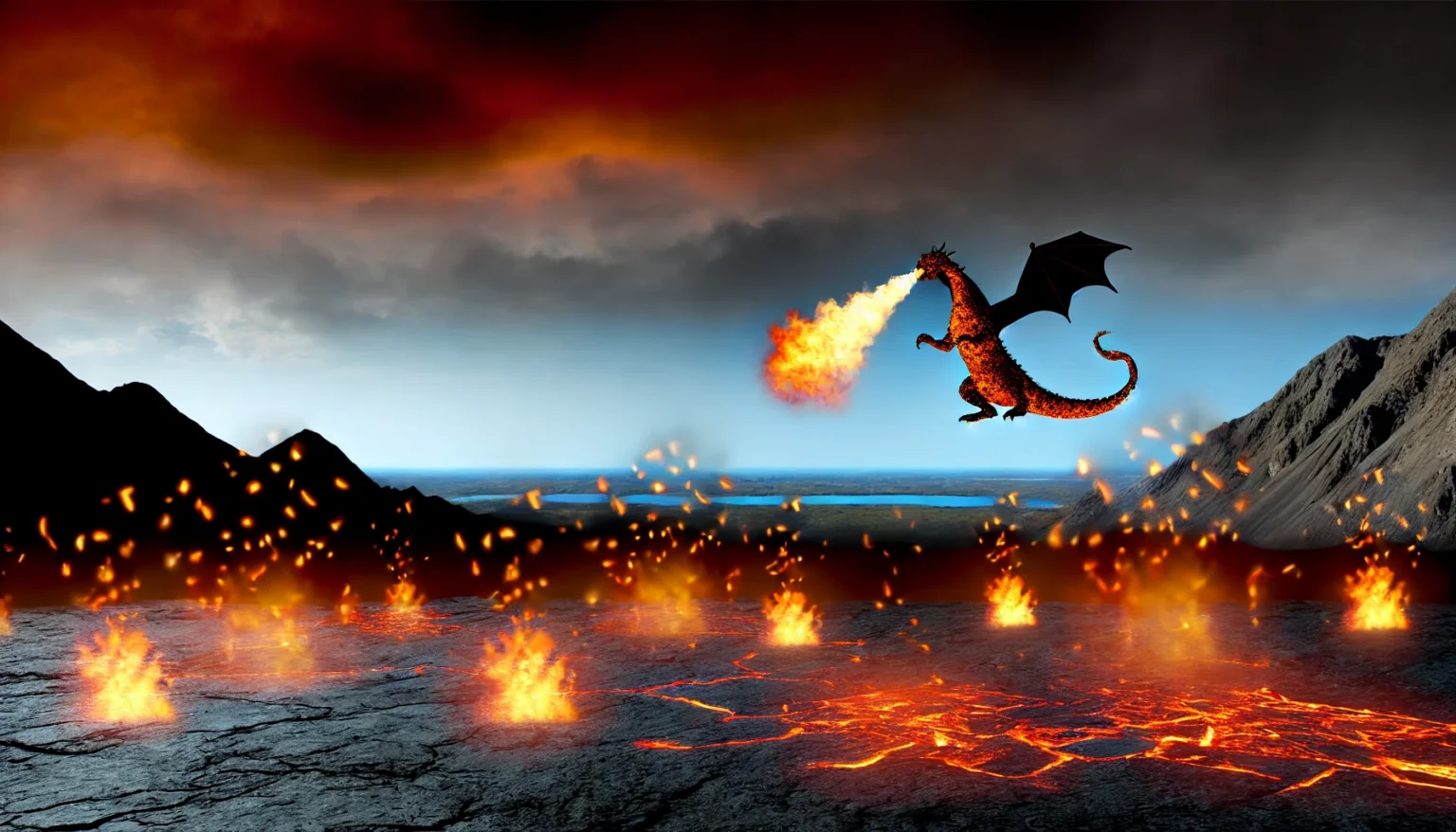Dragons captivate our imagination like few other creatures, swirling through tales of power, wisdom, and terror. The “fire:wo-6ittepos= dragon” emerges as a unique figure within this vast mythology, though shrouded in mystery and intrigue. In this blog post, we will explore this fascinating entity, attempting to unveil the layers of lore and legend that surround it. We’ll journey through its possible origins, powers, and the deep cultural footprints it has left across different civilizations.
Table of Contents
Whether a symbol of supreme power in Eastern cultures or a fearsome foe in the sagas of the West, dragons have always represented the pinnacle of mystical beings. Our focus, the fire:wo-6ittepos= dragon, will serve as a lens through which we examine these mythical creatures’ universal appeal and enduring legacy. Join us as we delve into a world where fire breathes and wings shadow the sun.
The Origins of fire:wo-6ittepos= dragon
The true origin of “Fire= Dragon” is veiled in mystery. The peculiar name itself suggests a blend of ancient words, perhaps hinting at a forgotten lore or a hidden layer of mythology. One theory posits that “Wo-6ittepos” could be derived from an archaic dialect, signifying a guardian or a spectral force, thereby framing our dragon not just as a creature of fire:wo-6ittepos= dragon, but as a protector steeped in elemental power.
Moreover, tracing the lineage of such mythical dragons often leads us to ancient texts and oral traditions where dragons ruled as gods or demons. If “fire:wo-6ittepos= dragon” belongs to this esteemed lineage, it could symbolize the amalgamation of elemental forces of nature, revered by civilizations that once painted their stories on cave walls or etched them into the annals of their culture’s most sacred scrolls.
Characteristics and Powers
“fire:wo-6ittepos= dragon” is imagined as a magnificent creature, its scales shimmering with the hues of molten lava, and eyes glowing like coals. Dragons, across various cultures, are often attributed with not just the ability to breathe fire but also to command other elements of nature. Thus, our dragon could possibly control storms, rivers, or even volcanic eruptions, making it a formidable figure in the mythical bestiary.
The powers of the fire:wo-6ittepos= dragon might also include immortality or regeneration, common traits among mythical dragons, symbolizing eternal wisdom and the cyclic nature of time. These characteristics make the dragon not only a creature to be feared but also revered, serving as a guardian of both earth and sky, presiding over the balance of natural forces.
Symbolic Significance of Dragons
Dragons are rich in symbolism, embodying chaos, strength, and protection. In Eastern mythology, dragons are seen as benevolent beings—symbols of prosperity, rain, and celestial power. Conversely, Western narratives often depict them as malevolent creatures hoarding treasures or holding maidens captive, representing greed and destruction.
For the fire:wo-6ittepos= dragon, its symbolic significance could be interpreted as dual: a destroyer with its fiery breath and a protector through its formidable presence. Such symbolism might be rooted in the dragon’s connection to elemental forces, viewed by ancient cultures as both creators and destroyers, their very existence a paradox.
fire:wo-6ittepos= dragon in Popular Media
Though not a mainstream icon, the Fire= Dragon might find echoes in literature and film, where dragons often symbolize the struggle between good and evil. This dragon could be conceptualized in fantasy novels or movies, inspiring awe and fear, serving as a pivotal character that challenges heroes and shapes the narrative arc.
Additionally, in a world increasingly enamored with digital entertainment, the Fire= Dragon could serve as an intriguing character in video games or virtual reality experiences, where players might interact with or battle against this mighty beast in epic, mythical settings.
Theories and Interpretations
Scholars and enthusiasts alike may offer varied interpretations of the Fire= Dragon. Some might view it as a metaphor for natural disasters, reflecting humanity’s fear and respect for nature’s raw power. Others might interpret it as a symbol of ultimate wisdom, guarding esoteric knowledge as fiercely as it guards its lair.
Within academic circles, the Fire= Dragon could be a case study in mythological evolution, illustrating how dragon myths have adapted over centuries, influenced by cultural exchanges and the human psyche’s deep-seated fears and aspirations.
Conclusion
The Fire= Dragon, with its enigmatic aura and deep mythological roots, encapsulates the essence of dragon lore. As we ponder its origins, powers, and significance, we delve not just into the story of a mythical creature, but into the heart of human belief and the mysteries that have shaped our understanding of the world around us.
By exploring this mythical creature, we connect with our ancestors’ fears, hopes, and the stories they told under starlit skies, around roaring fires, reminding us that dragons, like the Fire, while fantastical, are born from very real human experiences and emotions.
Call to Action
Do you have your own dragon tales or mythical creatures you’re intrigued by? Share your stories and thoughts in the comments below, and let’s keep the conversation about these magnificent creatures alive!
Read More:aesthetic:tszo2bm5lxa= fall wallpaper
